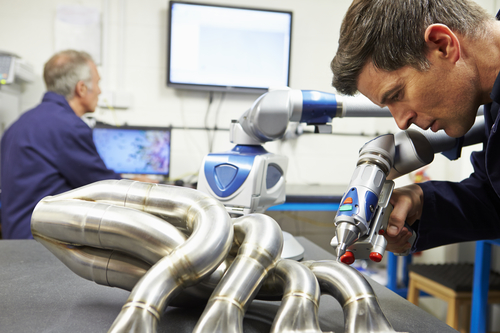A CMM or coordinate measuring machine plays a very important role not just in the world of quality control procedures but also when it comes to parts inspection. Since quality control and inspection are two of the determining factors as to whether a product will meet customer requirements or not, tools like the CMM will be very much essential in the process. If you have finally decided to buy a CMM to help you with then here are tips on how you can make sure you will be able to buy one that suits your needs.
Size Matters a Lot
One of the greatest considerations that you will need to bear in mind even before you consider all other factors is the size of the machine. You know you will get the right CMM size to suit your needs if you have considered not just the part sizes but also the number of parts needed during production. Together with these, you also have to establish whether or not there are room limitations. You should have a definite spot in mind where you will place the CMM once you purchase it. Do not forget to consider any changes you will expect in the next 5 years or so when it comes to using such a tool. Jot down the measurements on a sheet of paper to help you easily remember the figures that you have taken.
You Should Bear These Size-Related Factors in Mind
Whether you will use the CMM in a metrology lab or anywhere else, it is important to remember the 4 is to 1 or the 10 is to 1 rule or that rule that dictates that you should get a device that is at least capable of battling challenges with part tolerance at a precision that is four to 10 times than this challenge. Alongside this, you must also take design phase, geometric features, and manufacturing processes into account.
Search for a CMM that Can Adjust to Various Features and Material Types
When purchasing a CMM, it is also very important to consider buying one that has the capability to adjust to the different material types and features. Depending on your requirements, you may choose between the styli rack and the hexagon probe changer racks. The first type is capable of saving you time when inspecting parts with varying features while the second type can perform a faster job even when there is a need to repeat exchanges in probes and probe modules as well as extensions.
You Should Also Know Your Shop’s Environment
The question you need to answer here is: Will you be placing the machine on your shop’s production floor? This will then mean that the machine will come in contact with oil, dust and dirt – all of which can have an effect on measurement results. You will need a more rugged CMM if this is the case.
CMM Measurement Performance Must be Considered Too
Remember that varying CMM sizes dictate different CMM performances as well. In order to know whether the technology will suit your needs, you should also know which particular applications you will use it for.
Looking for the right CMM to suit your needs? You can look into our list of offerings here at Willrich. With us, you can be sure you will get one that matches your specifications.





